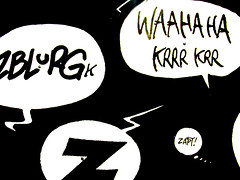I'm a writer. Not news, I
know. But, writers write. They read as well, and, sometimes, they do a bit of
living - on the side, so you won't really notice it.
So far, on this blog, I've
served the needs of numerous authors by interviewing
them and promoting their work. I've reviewed books I've read. Because,
believe me, any writer who doesn't read is wasting his time. You can't write in
isolation, unaware of what's happening in the world of books. I don't read as
much as I used to, or as much as I should, or, indeed, as much as I'd like to.
But last year, apart from the monthly writing magazines, frequent newsletters, and emailed updates I read, I managed to get through 30 books. This year I'd
like to try to average 1 a week. We'll see.
But, more importantly, I'd
like to get some new writing done, some of my past writing edited, and more of
my work published. So, I'm publicly declaring a determination to enter work for
competitions, to submit work to magazines and to complete the novels I
currently hold in draft form.
Why make such a
declaration public?
Well, if it's out there
with readers, you're likely to ask me about my progress, which means I have an
additional motive for actually keeping to the plan. I don't want to have to
find excuses why I haven't done this or that. Not that that will stop me
finding such excuses, when I feel the need, of course.
What this means in
practice is that my Daily Word Spot will either disappear completely (please
let me know how important this is to you as a reader by making a comment) or it
might become a weekly digest with a few words in each instead. The problem with
those posts is that they take up a lot of time, you see.
So, the plan is to do a
longer article each week, usually on the writing process or something involved
with books, reading and writing. This will replace my previous regular
Thursday interview slot. At the weekend, I'll do a summary of my writing
activity, illustrating what does and doesn't work and letting readers know
what's involved in actually getting words down on paper (or, of course, on
screen for the ebooks).
I'll keep up the writing
contests page, since I'll be entering competitons and know how useful that
particular page has been to a number of you.
And, this is breaking news
here, I'm going to be giving something back to you for your time and
contributions. Tomorrow, I'll post the full text of my free ebook, But, Baby, It's Cold Outside, so you can
read it here, if you wish. It's an appropriate story for the day, since it's set
on New Year's Eve. However, the real news is that I'll start to release the
full text of my novel, Breaking Faith,
in instalments, so that those who haven't bought or borrowed it, can read the whole
story here. That will start on Friday, 6th January, with the Prologue, and
continue each Friday until the end of the book is reached.
Why?
Writing is all about being
read. Any modern writer who sets out to make money from writing as a primary
aim is either daft or self-deluded. The JK Rowlings and Dan Browns represent an
almost infinitesimal fraction of the community of writers out there. In UK, the
average novel sells no more than 2,000 copies. For an experienced writer,
that's around a year's work. At a royalty rate of 10% on a £7.99 paperback -
well, you do the math, as they say. Let's just accept that by far the majority
of writers, irrespective of talent and ability, will never make a living from
their writing. For those wannabees who think they'll make a quick killing in
the market place, please accept this as a friendly warning: if you want to make
a quick buck, find something else; writing isn't going to do it for you.
So, I'll waste no more of
your time now. But, please, do make comments. It's easily done, anonymously, if
you can't do it any other way; you can always add your name at the end of the
comment. Writers exist in a world that can be isolating, and feedback is not
only important, it's essential.
My thanks for your time
and attention. May I wish you all the very best in the coming year? I hope you
all receive the good things you wish for yourselves.





































